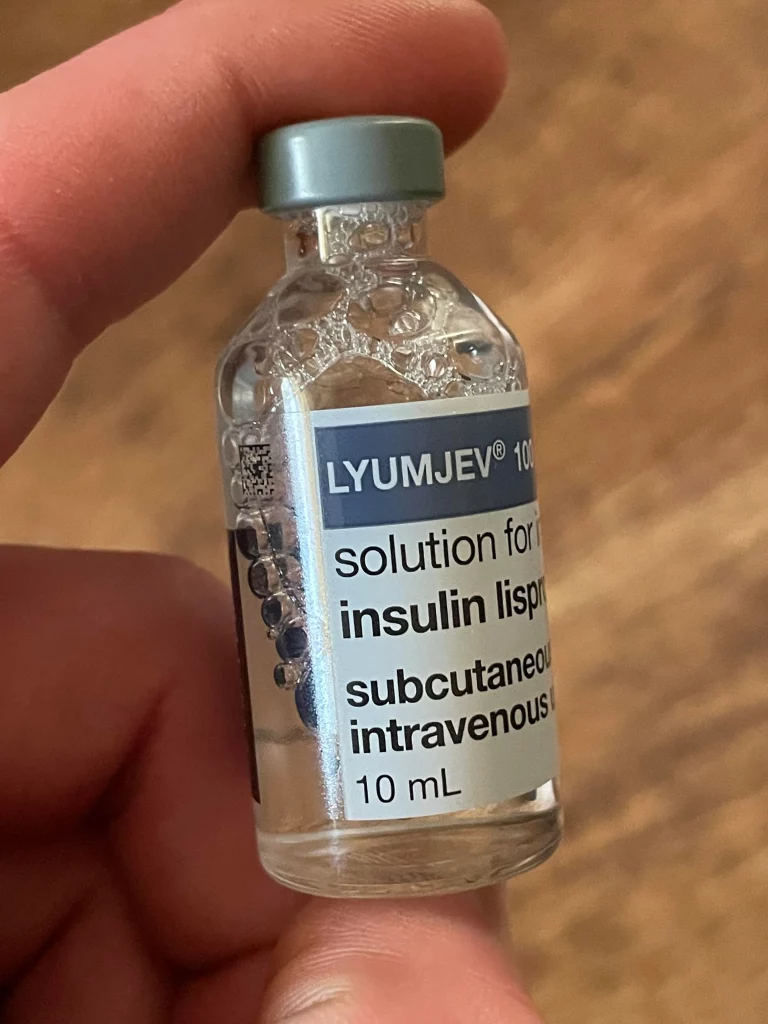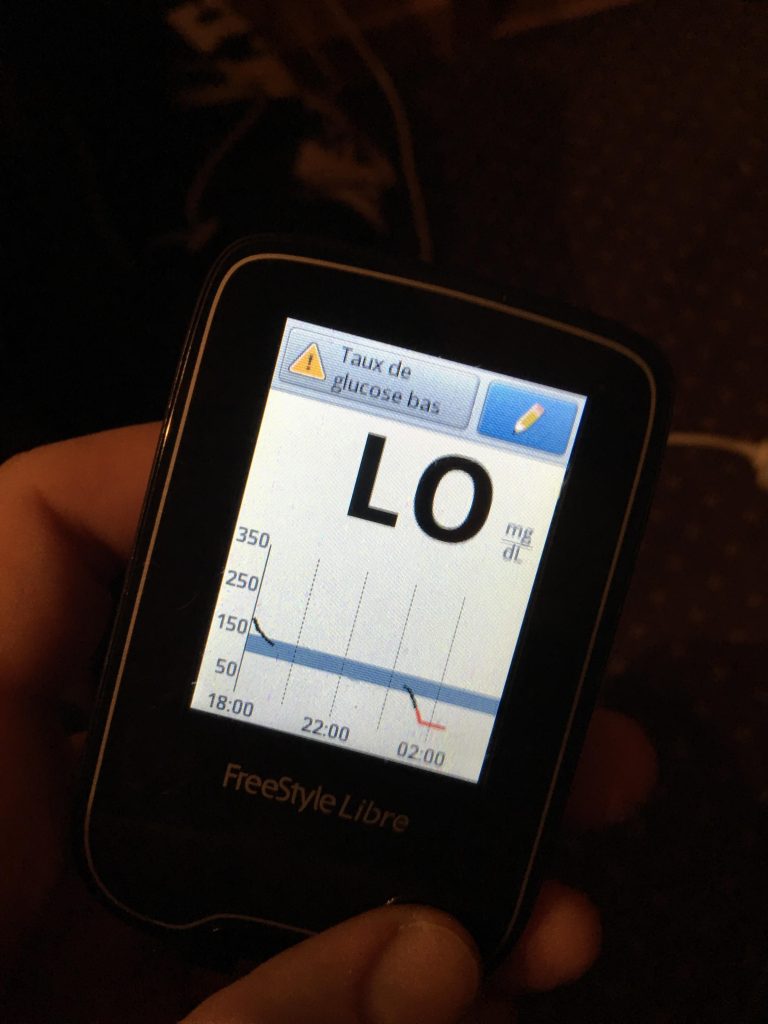1. You're always needing to pee, especially at night
 image source: reddit.com
image source: reddit.com
Frequent urination, a common symptom of diabetes, can disrupt daily life and sleep patterns. Individuals may find themselves needing to urinate more often than usual, particularly at night, a condition known as nocturia. This excessive urination occurs because the kidneys are working to eliminate excess glucose from the bloodstream.
2. No matter how much you drink, you're still thirsty
 image source: reddit.com
image source: reddit.com
Experiencing persistent and excessive thirst is another hallmark symptom of diabetes. Despite drinking fluids regularly, individuals with diabetes may still feel overwhelmingly thirsty. This unquenchable thirst occurs because the body is attempting to flush out excess glucose through urine, leading to dehydration.
3. Consistent feelings of hunger - you're never full

image source: reddit.com
Diabetes can also manifest as consistent feelings of hunger, particularly shortly after eating. This phenomenon occurs because the body's cells are not receiving adequate energy due to insulin resistance or insufficient insulin production. As a result, despite consuming sufficient calories, the cells are unable to absorb glucose from the bloodstream effectively.
4. You've been losing weight without even trying

image source: reddit.com
Losing weight without trying, despite eating well, can be a concerning sign of undiagnosed or poorly managed diabetes. When the body is unable to utilize glucose for energy due to insulin resistance or insufficient insulin production, it begins to break down fat and muscle tissue as an alternative fuel source.
5. You sleep enough, but you're still tired
 image source: reddit.com
image source: reddit.com
Persistent fatigue and lethargy are common symptoms experienced by individuals with diabetes. Despite getting enough rest, they may still feel exhausted and lacking in energy. This fatigue is often attributed to the body's inability to effectively utilize glucose for energy due to insulin resistance or insufficient insulin production.
6. You've been experiencing weird changes in vision, like random blurriness
 image source: reddit.com
image source: reddit.com
Experiencing fluctuations in vision clarity or sudden blurring can be alarming and may indicate underlying issues such as diabetes. High blood sugar levels can cause the lens inside the eye to swell, resulting in changes in vision. This swelling can lead to difficulty focusing, blurred vision, or even temporary vision loss.
7. Any cuts or wounds take ages to heal
 image source: reddit.com
image source: reddit.com
Individuals with diabetes may notice that injuries, cuts, or sores take longer to heal than usual. This delayed wound healing occurs due to several factors related to diabetes, including poor circulation and nerve damage. High blood sugar levels can damage blood vessels, impairing the delivery of oxygen and nutrients to the site of the injury, which is essential for the healing process.
8. You've been feeling a tingling in your hands and feet
 image source: reddit.com
image source: reddit.com
Numbness or tingling sensations, particularly in the hands or feet, are common symptoms of diabetic neuropathy. Diabetes can damage the nerves throughout the body, resulting in sensations of tingling, numbness, or burning in the extremities. This condition, known as peripheral neuropathy, often develops gradually over time and can significantly impact mobility and quality of life.
9. Your skin has become super dry and itchy
 image source: reddit.com
image source: reddit.com
Diabetes can also manifest as excessively dry and itchy skin, a condition known as diabetic dermopathy. High blood sugar levels can cause the body to lose fluid, leading to dehydration and dry skin. Additionally, diabetes can disrupt the function of sweat glands and oil glands, further contributing to dryness and irritation.
10. You're suddenly prone to more infections
 image source: reddit.com
image source: reddit.com
Diabetes can weaken the immune system, making individuals more susceptible to infections, including skin infections and recurring yeast infections. High blood sugar levels provide an ideal environment for bacteria and fungi to thrive, increasing the risk of infections such as cellulitis, abscesses, and fungal infections.
11. You're easily irritated and moody

image source: reddit.com
Feelings of irritability, anxiety, or moodiness can be symptoms of uncontrolled diabetes, often attributed to fluctuations in blood sugar levels. When blood sugar levels are too high or too low, it can affect brain function and mood regulation, leading to irritability and mood swings that happen regularly.
12. You've noticed you have bleeding gums, or even a gum infection
 image source: reddit.com
image source: reddit.com
Individuals with diabetes are at an increased risk of developing gum disease, also known as periodontal disease, due to the effects of high blood sugar levels on oral health. Gum disease occurs when bacteria in the mouth form plaque, a sticky film that can irritate the gums and lead to inflammation, infection, and bleeding.
13. You're having problems in the bedroom
 image source: reddit.com
image source: reddit.com
Diabetes can affect sexual function in both men and women, causing problems such as erectile dysfunction in men and reduced libido or difficulty achieving orgasm in women. Erectile dysfunction (ED) occurs when there is insufficient blood flow to the penis, resulting in difficulty achieving or maintaining an erection.
14. You've noticed your breath smells a little fruity
 image source: reddit.com
image source: reddit.com
Fruity or acetone-like (a bit like nail polish remover!) breath odor can be a sign of diabetic ketoacidosis (DKA), a serious complication of diabetes characterized by dangerously high blood sugar levels and ketone accumulation in the bloodstream. When the body is unable to use glucose for energy due to insulin deficiency or resistance, it begins to break down fat for fuel, resulting in the production of ketones.
15. You always seem to have a headache, particularly in the morning
 image source: reddit.com
image source: reddit.com
Frequent headaches, particularly in the mornings, can be a symptom of fluctuating blood sugar levels in individuals with diabetes. When blood sugar levels drop too low during the night, it can trigger headaches upon waking, known as hypoglycemic headaches. Conversely, high blood sugar levels can also cause headaches due to dehydration.
16. You find it impossible to concentrate on anything
 image source: reddit.com
image source: reddit.com
Diabetes can affect cognitive function and mental clarity, leading to difficulty focusing or concentrating on tasks. Fluctuations in blood sugar levels can impact brain function, affecting memory, attention, and problem-solving abilities. When blood sugar levels are too high or too low, it can impair cognitive function.
17. You feel nauseous all the time, or even throw up a lot

image source: reddit.com
Experiencing nausea and vomiting, especially when accompanied by other symptoms, can be indicative of various health conditions, including diabetes-related complications such as diabetic ketoacidosis (DKA) or hyperglycemic hyperosmolar state (HHS). In individuals with diabetes, nausea and vomiting may occur as a result of dangerously high blood sugar.
18. You go dizzy and lightheaded when standing up too fast
 image source: reddit.com
image source: reddit.com
Feeling dizzy or lightheaded, especially when standing up quickly, can be a symptom of orthostatic hypotension, a condition commonly associated with diabetes. Orthostatic hypotension occurs when there is a sudden drop in blood pressure upon standing, leading to dizziness, lightheadedness, or fainting.
19. You've noticed random dark patches of skin
 image source: reddit.com
image source: reddit.com
Dark patches of skin forming, particularly in the folds and creases of the body, may be a sign of a condition called acanthosis nigricans, which is commonly associated with insulin resistance and type 2 diabetes. Acanthosis nigricans manifests as thick, velvety, darkened skin patches, often appearing in areas such as the neck, armpits, groin, and other skin folds.
20. You might be putting on weight instead of losing it
 image source: reddit.com
image source: reddit.com
Some individuals with diabetes may experience increased hunger and unintentional weight gain despite consuming excess calories. This paradoxical phenomenon can occur due to insulin resistance, a hallmark feature of type 2 diabetes, where the body's cells become less responsive to insulin's effects.
21. You're experiencing poor circulation
 image source: reddit.com
image source: reddit.com
Diabetes can impair blood flow throughout the body, leading to poor circulation, particularly in the extremities. High blood sugar levels can damage blood vessels and promote the development of atherosclerosis, a condition characterized by the buildup of fatty deposits in the arteries, narrowing and hardening them.
22. You've been having foot problems, like ulcers
 image source: carolinefife.com
image source: carolinefife.com
Diabetes significantly increases the risk of foot complications such as neuropathy and foot ulcers. Neuropathy, or nerve damage, is a common complication of diabetes that can lead to numbness, tingling, burning sensations, or loss of sensation in the feet. As a result, individuals with neuropathy may not notice minor injuries or wounds on their feet.
23. You find it difficult to empty your bladder completely
 image source: reddit.com
image source: reddit.com
Diabetes-related nerve damage can affect bladder function, leading to various bladder problems. Autonomic neuropathy, a type of nerve damage common in individuals with diabetes, can disrupt the nerves that control bladder function, resulting in issues such as urinary incontinence, frequent urinary tract infections (UTIs), or difficulty emptying the bladder completely.
24. You seem to have slow digestion with a lot of bloating
 image source: reddit.com
image source: reddit.com
Gastroparesis, a condition characterized by delayed stomach emptying, can occur in individuals with diabetes due to nerve damage affecting the muscles in the digestive tract. Diabetes-related autonomic neuropathy can disrupt the nerves that control gastrointestinal motility, leading to delayed transit of food through the stomach and into the small intestine.
25. What actually causes diabetes? Family genetics might play a part
 image source: reddit.com
image source: reddit.com
Family history plays a significant role in the risk of developing diabetes. Having a parent or sibling with diabetes increases an individual's likelihood of developing the condition themselves. While genetics alone do not determine whether someone will develop diabetes, they can influence factors such as insulin resistance and beta cell function.
26. A sedentary lifestyle is the silent killer
 image source: reddit.com
image source: reddit.com
Being overweight or obese significantly increases the risk of developing type 2 diabetes. Excess body fat, especially abdominal fat, can lead to insulin resistance, where cells become less responsive to insulin. A sedentary lifestyle, characterized by lack of physical activity, further exacerbates this risk by contributing to weight gain.
27. Your body might have insulin resistance
 image source: reddit.com
image source: reddit.com
Insulin resistance occurs when cells in the body become less responsive to insulin, leading to elevated blood sugar levels. Over time, the pancreas may struggle to produce enough insulin to compensate for the resistance, resulting in type 2 diabetes. Factors such as obesity, physical inactivity, poor diet, and genetics can contribute to insulin resistance.
28. A very poor diet can be a cause
 image source: reddit.com
image source: reddit.com
A diet high in processed foods, sugary beverages, refined carbohydrates, and unhealthy fats can increase the risk of developing type 2 diabetes. These foods can cause rapid spikes in blood sugar levels and contribute to weight gain and insulin resistance over time, which may need some re-evaluation when it comes to food.
29. Age: your risk of developing diabetes increases as you get older
 image source: reddit.com
image source: reddit.com
The risk of developing diabetes increases with age, particularly after the age of 45. As people get older, they tend to become less active, gain weight, and may develop other health conditions that contribute to insulin resistance and impaired glucose metabolism. Additionally, aging is associated with changes in hormone levels and decreased beta cell function, which can further increase the risk of diabetes.
30. You can develop a certain type of diabetes when you're pregnant
 image source: reddit.com
image source: reddit.com
Gestational diabetes is a type of diabetes that develops during pregnancy and affects about 2-10% of pregnant women. While gestational diabetes typically resolves after childbirth, it increases the risk of developing type 2 diabetes later in life for both the mother and the child she's pregnant with.
31. So how can you best prevent it? Keep a healthy weight for your height and build
 image source: reddit.com
image source: reddit.com
Maintaining a healthy weight is crucial for reducing the risk of developing diabetes and promoting overall health and well-being. Aiming for a body mass index (BMI) within the healthy range for your height and build can help prevent obesity-related complications such as insulin resistance and metabolic syndrome.
32. Focus on a balanced diet with plenty of greens
 image source: reddit.com
image source: reddit.com
Consuming a balanced diet rich in fruits, vegetables, whole grains, lean proteins, and healthy fats is essential for managing blood sugar levels and reducing the risk of diabetes. Fruits and vegetables provide essential vitamins, minerals, and antioxidants that support overall health and help prevent chronic diseases.
33. Limit your sugar and carbohydrates (avoid that dessert aisle!)
 image source: reddit.com
image source: reddit.com
Minimizing the intake of sugary drinks, sweets, and processed foods high in refined carbohydrates is essential for preventing spikes in blood sugar levels and reducing the risk of diabetes. Foods and beverages high in added sugars, such as sodas, candies, pastries, and sweetened snacks, can cause rapid increases in blood glucose levels.
34. Control your portion sizes to avoid overeating
 image source: reddit.com
image source: reddit.com
Being mindful of portion sizes is important for preventing overeating, managing weight, and controlling blood sugar levels. Consuming larger portions than necessary can lead to excess calorie intake and weight gain, increasing the risk of developing obesity-related complications such as insulin resistance and type 2 diabetes.
35. Choose foods with a low glycemic index
 image source: reddit.com
image source: reddit.com
Opting for foods that have a lower impact on blood sugar levels, such as whole grains, legumes, and non-starchy vegetables, can help stabilize blood glucose levels and reduce the risk of diabetes. Foods with a low glycemic index (GI) are digested and absorbed more slowly, resulting in gradual increases in blood sugar levels and sustained energy levels.
36. Be more active: aim for at least 150 minutes of moderate exercise a week
 image source: reddit.com
image source: reddit.com
Regular physical activity is essential for maintaining a healthy weight, improving insulin sensitivity, and reducing the risk of diabetes and other chronic diseases. Aim for at least 150 minutes of moderate-intensity aerobic activity or 75 minutes of vigorous-intensity activity per week, along with muscle-strengthening exercises on two or more days.
37. Staying hydrated is always the most important thing
 image source: reddit.com
image source: reddit.com
Drinking plenty of water throughout the day is essential for supporting overall health and hydration, which is particularly important for individuals at risk of or managing diabetes. Water plays a crucial role in various bodily functions, including regulating body temperature, aiding digestion, transporting nutrients, and flushing out toxins.
38. Limit your alcohol intake
 image source: reddit.com
image source: reddit.com
If you choose to consume alcohol, it's essential to do so in moderation, as excessive alcohol consumption can contribute to weight gain and increase the risk of developing diabetes. Alcohol is high in calories and devoid of essential nutrients, so consuming too much can lead to weight gain, particularly around the abdomen, which is a risk factor for insulin resistance and type 2 diabetes.
39. If you smoke, quitting can help reduce your risk of diabetes

image source: reddit.com
Smoking is strongly associated with an increased risk of type 2 diabetes, as well as numerous other health problems, including cardiovascular disease, cancer, and respiratory disorders. The harmful chemicals in tobacco smoke can damage cells, tissues, and organs throughout the body, leading to inflammation, oxidative stress, and insulin resistance.
40. Find an exercise you enjoy so you'll keep up with it, like social fitness classes

image source: reddit.com
Find activities that you enjoy and make them a regular part of your schedule, whether it's walking, jogging, cycling, swimming, dancing, or participating in team sports. Regular physical activity not only helps burn calories and maintain a healthy weight but also helps your body use insulin more effectively, lowering blood sugar levels and reducing the risk of developing type 2 diabetes.
41. Stress makes the risk worse: it's time to relax!
 image source: reddit.com
image source: reddit.com
Chronic stress can have a significant impact on physical and mental health, including increasing the risk of developing type 2 diabetes and exacerbating diabetes-related complications. When you're stressed, your body releases hormones such as cortisol and adrenaline, which can raise blood sugar levels, promote inflammation, and impair insulin sensitivity.
42. Skimping on sleep is one of the worst things you can do!
 image source: reddit.com
image source: reddit.com
Adequate sleep is crucial for overall health and well-being, including the prevention and management of diabetes. Aim for 7-9 hours of quality sleep each night to support various physiological processes, including hormone regulation, metabolism, and immune function. Quality sleep helps regulate hormones such as insulin, leptin, and ghrelin.
43. Now might be a good time to start monitoring your blood sugar
 image source: reddit.com
image source: reddit.com
If you have prediabetes or are at risk of diabetes, monitoring your blood sugar levels regularly is essential for early detection and management. Work with your healthcare provider to establish an appropriate monitoring schedule and target blood sugar levels to keep them within a healthy range.
44. Check your family history so you can better understand the risks
 image source: reddit.com
image source: reddit.com
Being aware of any family history of diabetes is crucial for understanding your risk factors and taking proactive steps to prevent or manage the condition. Genetics plays a significant role in the risk of developing diabetes, with a family history of diabetes increasing the likelihood of developing the condition.
45. Educate yourself about diabetes (you're halfway there reading this!)
 image source: reddit.com
image source: reddit.com
Educating yourself about diabetes and its risk factors, symptoms, and prevention strategies is essential for making informed decisions about your health. Stay up-to-date on the latest research, guidelines, and recommendations for diabetes prevention and management. Learn about the different types of diabetes and risk factors.
46. Always attend your routine healthcare checkups
 image source: reddit.com
image source: reddit.com
Regular preventive health screenings and check-ups with your healthcare provider are essential for monitoring your overall health and detecting any potential health issues early. Schedule routine appointments for blood pressure monitoring, cholesterol screening, blood glucose testing, and other preventive health screenings to assess your risk factors for diabetes and other chronic diseases.
47. Keep on top of taking any prescribed medication
 image source: reddit.com
image source: reddit.com
If you have other health conditions that require medication, such as hypertension, dyslipidemia, or heart disease, it's essential to take your medications as prescribed by your healthcare provider. Medications prescribed for these conditions can help manage risk factors for diabetes, such as high blood pressure, high cholesterol, and cardiovascular disease.
48. Stay proactive: manage your good health as a whole
 image source: reddit.com
image source: reddit.com
Being proactive about your health is essential for preventing diabetes and managing other health conditions effectively. Take charge of your well-being by adopting healthy lifestyle habits, such as eating a balanced diet, staying physically active, managing stress, and getting regular check-ups with your healthcare provider.
49. Surround yourself with the right people who keep you healthy and motivated
 image source: reddit.com
image source: reddit.com
Building a support system of friends, family, or healthcare professionals who understand and support your goals can be instrumental in preventing diabetes and maintaining a healthy lifestyle. Surround yourself with individuals who encourage and motivate you to make positive changes, whether it's through providing emotional support, offering practical assistance, or participating in healthy activities together.
50. Stay positive: focus on small progress rather than dwelling on setbacks
 image source: reddit.com
image source: reddit.com
Maintaining a positive outlook and mindset is crucial for staying motivated and resilient in your efforts to prevent diabetes and adopt a healthier lifestyle. Focus on the progress you're making toward your goals, celebrate your achievements, and acknowledge the positive changes you've implemented in your life!
 image source: reddit.com
image source: reddit.com image source: reddit.com
image source: reddit.com

 image source: reddit.com
image source: reddit.com image source: reddit.com
image source: reddit.com image source: reddit.com
image source: reddit.com image source: reddit.com
image source: reddit.com image source: reddit.com
image source: reddit.com image source: reddit.com
image source: reddit.com
 image source: reddit.com
image source: reddit.com image source: reddit.com
image source: reddit.com image source: reddit.com
image source: reddit.com image source: reddit.com
image source: reddit.com image source: reddit.com
image source: reddit.com
 image source: reddit.com
image source: reddit.com image source: reddit.com
image source: reddit.com image source: reddit.com
image source: reddit.com image source: reddit.com
image source: reddit.com image source: carolinefife.com
image source: carolinefife.com image source: reddit.com
image source: reddit.com image source: reddit.com
image source: reddit.com image source: reddit.com
image source: reddit.com image source: reddit.com
image source: reddit.com image source: reddit.com
image source: reddit.com image source: reddit.com
image source: reddit.com image source: reddit.com
image source: reddit.com image source: reddit.com
image source: reddit.com image source: reddit.com
image source: reddit.com image source: reddit.com
image source: reddit.com image source: reddit.com
image source: reddit.com image source: reddit.com
image source: reddit.com image source: reddit.com
image source: reddit.com image source: reddit.com
image source: reddit.com image source: reddit.com
image source: reddit.com image source: reddit.com
image source: reddit.com

 image source: reddit.com
image source: reddit.com image source: reddit.com
image source: reddit.com image source: reddit.com
image source: reddit.com image source: reddit.com
image source: reddit.com image source: reddit.com
image source: reddit.com image source: reddit.com
image source: reddit.com image source: reddit.com
image source: reddit.com image source: reddit.com
image source: reddit.com image source: reddit.com
image source: reddit.com image source: reddit.com
image source: reddit.com